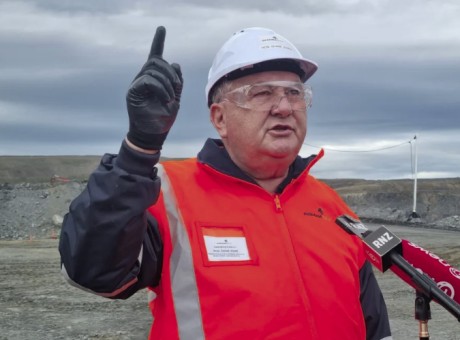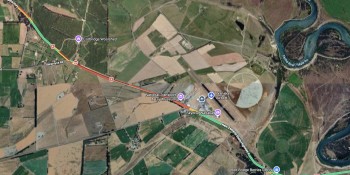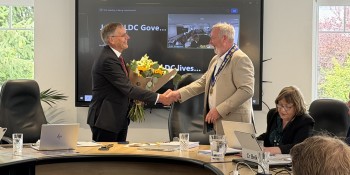Three waters opponents vying for council likely powerless to stop it

With polls closing in less than a fortnight, some council candidates are focusing on opposition to three waters reforms - but will have little ability to stop it.
Councils are largely in support of some kind of reform and back greater Māori involvement in decision-making, but oppose the government's proposed model over a range of concerns.
The government however shows little sign of slowing its ambitious plan, with legislation on track to be in place by the end of the year - and National has promised to repeal it before the new entities take over in July 2024.
Either way, the decision will be up to central, not local government - and current mayors are warning single-issue candidates will have little ability to sway the outcome.
A recent survey of all 291 mayoral hopefuls showed over 75 percent opposed the plan to centralise council water services into four big standalone entities.
Porirua City mayor Anita Baker was among the minority in support, but with some reservations over local representation - and said she had first-hand experience of single-issue candidates on the campaign trail.
"We've seen some of that on the campaign trail already and absolutely I do worry about those sorts of things but, actually, I know that the status quo can't stay as it is and that we can't afford not to do it".
Auckland's mayor Phil Goff is stepping down from the role after the election, and although he has opposed the government's plan - saying it would diminish accountability and responsiveness - he said he feared losing the opportunity for change because of disagreement over the governance.
"There needs to be reform of water and we stand by that - we just don't like the government's model that they've created for Auckland which in our view is unnecessary."
He said three waters did not appear to be a central topic for the Auckland mayoral race, but opponents to the project across the country needed to do what Auckland had done - and come up with solutions.
"They really need to say what their clear alternative is because the status quo won't serve anybody's purposes."
The opposition group Communities 4 Local Democracy has proposed alternative models, but those have been rejected by the government as unworkable.
Timaru Mayor Nigel Bowen said the district council was one of the first to sign up to the group of councils, and was also one of three that took the government to court over asset ownership rights.
"We've got an urban supply feeding Timaru Central and 50 percent of that actually fuels our commercial and industrial so the risk for us not having that accountability back through local democracy is a real concern."
He said his personal stance matched that of the council, but candidates needed to have more than one focus.
"When you're going into these positions you've got to think wider than one issue," he said.
"You've got to remember this reform isn't a done deal, it's at best 50-50 - you've got one side of the house wanting to push it through and then the other side of the house saying they're going to repeal it so it would be great if we could actually get some bipartisan support for big reforms."
Selwyn's mayor Sam Broughton said the council had already invested in water systems and did not want residents paying again to bring nearby districts up to standard.
"Elections always play on your mind when you're an elected member, so that's very present," he said.
Selwyn District Mayor Sam Broughton says the Government is yet to make a convincing case on the Three Waters' reforms. Photo: Supplied / Selwyn District Council
"All councils across the country at the moment but I think people in Selwyn are sensible, and can understand the seriousness of water quality and wanting great drinking water not only here but across the country and I think we've made good decisions locally about providing that for our district and not wanting to commit our residents for not paying for everyone else's."
However, he warned that candidates needed to know the limits of their position.
"If you want to change government direction then stand for government get involved in national politics. If you want to deliver locally for the community within the rules of our nation then stand for local council and get involved in delivering for community today."
Associate Local Government Minister Kieran McAnulty has visited more than 40 councils since taking up the role in June, but refused to talk to RNZ about that until his tour was complete.





















